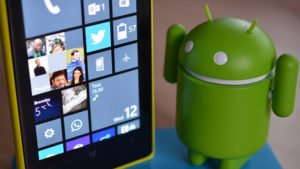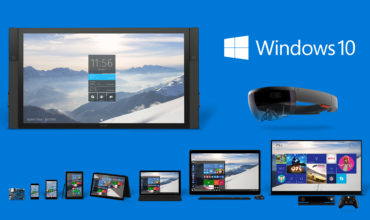When it comes to Microsoft’s mobile future, everything is on the table, including the possibility of running Android apps to fill in the ‘app gap’. Windows 10 for phone is not even out the door yet, but intel on Microsoft continues to keep this strategy alive.
A new report from Neowin sheds more light on this program’s status and obstacles.
According to the Neowin article, Microsoft is still actively developing the ability to run Android apps on Windows Phone. However, the project has not been given a green light to ship with the final product. Indeed, Microsoft may be continuing the project as a ‘Plan B’ in case the universal Windows apps model fails to catch on with developers. Neowin states:
“We have heard from multiple sources from inside the company that they are aware of Android apps running on Windows 10 for phones. One source chimed in to say that the apps that can run on Windows 10 are broad in scope and not limited to a specific set of apps as previous rumors had suggested.”
Rumors about the Android app project go back over a year ago to February, 2014 when the Verge first reported on the plan.
The Legal Question
One issue of concern with running Android apps on Windows Phone involves legal matters about the practice. Microsoft has famously leveraged the patent system against Android phone makers to collect substantial revenue. Google will jump at any opportunity to take legal action against Microsoft if the company tries to use Google Play apps within Windows.
Emulation of software – even when technically ‘open source’ – is always a legal gray area.
Sending the wrong signal
The second hurdle alluded to before is developers and universal Windows apps. If Microsoft comes out too early with an Android emulation plan, it severely undercuts the message about developing native apps for Windows 10. Undeniably it cuts any such arguments off at the knees making Windows 10 a hard sell to the development community.
After all, if Microsoft does not believe in the power of their app model, why should developers.
Although Microsoft could unveil such a plan at BUILD later in April, there is no evidence yet to suggest that they will. Instead, Microsoft may continue building out this system as a backup plan should things go very sour with Windows 10 and app adoption.
In that regard, we should hold off on any firm conclusions as a company like Microsoft likely has many contingency plans in place should certain product lines begin to fail.
Source: WindowsCentral



